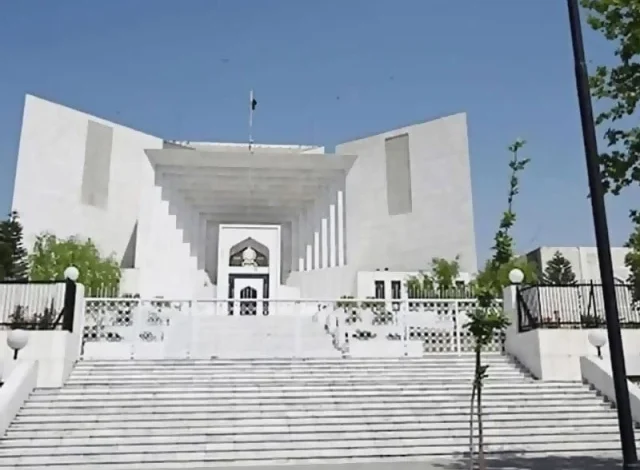Punishment needs to be appropriate. SC

According to the Supreme Court, proportionality must be used carefully, judiciously, and contextually, particularly when it comes to matters affecting human dignity and basic rights.
The supreme court emphasised that the proportionality principle provides a methodical foundation for judicial examination of administrative activities in a service case involving a sub-inspector.
The idea of proportionality offers a systematic framework for judicial review of administrative decisions, according to the four-page ruling written by Justice Syed Mansoor Ali Shah.
“Developed across various constitutional jurisdictions, it involves a four-step test: (i) the measure must pursue a legitimate aim; (ii) be suitable to achieve that aim; (iii) be necessary, in that no less restrictive alternative exists; and (iv) strike a fair balance between the measure’s impact on individual rights and the public interest.”
This court recently devised a four-stage procedure to evaluate the fairness and legitimacy of disciplinary and administrative rulings. According to the four-page order, “such a framework ensures that any interference with rights is justified, necessary, and lawful.”
The ruling was made in a service case in which the Punjab Service Tribunal, in a decision dated February 2, 2016, changed the penalty from a two-stage to a one-stage decrease in pay and partially granted the sub-inspector’s appeal.
Although an enquiry had been carried out, the prosecution “failed to produce even a shred of evidence” to support the claims, the tribunal said. The sub-inspector’s appeal against the tribunal’s decision was heard by a division bench of the highest court, presided over by Justice Shah.
The judgement stated that the tribunal chose to lower the penalty rather than clear the petitioner in spite of these obvious conclusions.
“The Tribunal seems to have applied the proportionality principle, if subtly, in concluding that the initial punishment was out of proportion to the alleged misbehaviour. Nevertheless, since no wrongdoing was proven, this application was illogical and problematic from a legal standpoint. Section 5 of the Punjab Service Tribunals Act, 1974, gives the Tribunal the authority to confirm, set aside, change, or modify contested rulings; however, the Tribunal did not appropriately utilise this discretion. Although the Tribunal can change the penalty in some situations, this discretion must be used carefully and in accordance with the record, the law, and fairness principles, the order said.
The court stated that only in cases when the punishment is “arbitrary, perverse, or based on irrelevant considerations” is judicial intervention in disciplinary measures justified. “Once the Tribunal found that the allegations were wholly unsubstantiated, the only lawful outcome was to exonerate the petitioner.”
The judgment further elaborated that proportionality fosters a stable and systematic method for constitutional adjudication.